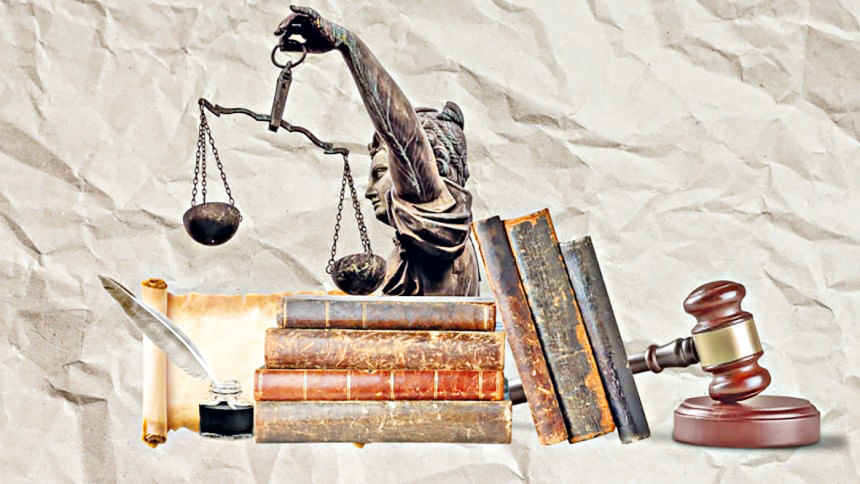Barriers to access justice

Law is a tool created by the people, for the people, in order to promote fairness and order in society. However, the legal system, frequently marginalises the very people it is meant to serve and protect—the weak, poor and vulnerable. Law and justice have been placed on a pedestal, accessible only to a few who possess the resources, education, and privilege to navigate the system. However, for the general people, law has become a distant and abstract entity, which is difficult to understand, harder to access, beyond their reach.
The pervasive use of legal jargons is a key barrier to access justice. Laws and legal documents are often written in complex technical language which is incomprehensible to the common people . While such language aims to achieve precision, it often prejudices those who do not have any specialised legal knowledge and training. The reluctance to simplify the law perpetuates 'elitism', making legal services increasingly opaque and alienating for the general populace.
In addition to the language barrier, the unaffordable cost of legal services presents another hurdle for the majority. This makes the legal system a privilege only for the wealthy and influential people, leaving the marginalised communities suffer in silence. The bureaucratic and procedural complexities of the system exacerbate the situation, causing delays that compound the financial and emotional burdens on those seeking justice. The system is designed in such a way that those without power or privilege are forced to navigate endless procedural hurdles, often leaving them disillusioned and without resolution. Thus, justice appears 'so close, yet so far'—within reach but inaccessible when people try to grasp it.
In Bangladesh, the presence of a unitary High Court Division in the capital further highlights this issue of inaccessibility and centralisation of the judiciary. Under the 8th Amendment of the Constitution, six permanent benches of the High Court Division were introduced. However, the initiative was criticised for violating the basic structure of the constitution. Yet, in reality, decentralisation could have eased the plight of the litigants by bringing justice closer to the people. Instead of traveling long distances to the capital, individuals could access legal services in their own divisions reducing both the financial and emotional toll of seeking justice.
Despite significant technological advancements in other sectors, the legal field has lagged behind in adopting digital tools and remains predominantly manual and shrouded in inefficiency. While innovative devices, applications, and AI are being developed to simplify everyday life and reduce human burdens, relatively little attention has been given to making legal systems more accessible, and understandable to the general people.
As Bangladesh stands on the cusp of reforms, the legal sector is one of the most critical areas in need of transformation. To build a more inclusive system, the legal framework must prioritise accessibility, affordability, and availability for all citizens, with particular focus on decentralisation and digitalisation. Outdated laws that perpetuate injustices and no longer reflect contemporary values should be restructured so that the legal system can meet the needs of the modern society. Ultimately, the purpose of the law should be to serve the collective good by ensuring that justice is equally accessible to all, rather than being an exclusive privilege reserved for an elite class.
The writer is LLM candidate at Bangladesh University of Professionals.

 For all latest news, follow The Daily Star's Google News channel.
For all latest news, follow The Daily Star's Google News channel. 


Comments